I asked a few of my favorite chefs for their advice on preparing the biggest meal of the year for most of us and put together this list to help make your holiday a little easier.
Chef Introduction
First, I would like to introduce the chefs and offer their professional advice. Thank them. If you click on their links, you can read all about them in my Novice2Pro interviews with them.
Chef David Nelson, Co-founder of Chef4Students.org
Chef Leslie Bilderback, Certified Master Baker & Cookbook Author
Chef Jennifer Field, Creator of PastryChefOnline
Chef Mark Vogel, Newspaper columnist
Here are some of their constructive suggestions:
PREPARING YOUR MENU
Chef Field – “Make a chart listing all the dishes you plan to serve, prep time for each, whether it can be made ahead or not, etc. Then, you can plan to finish some things on Tuesday or Wednesday (or even the weekend before, depending on what you’re making). Again, spread out over a few days, Thanksgiving is much less daunting.
Set your table completely the day before and according to your list. (If you pass four sides at the table, you’ll want to ensure you have the right serving pieces).
It seems like such a small thing, but it’ll save you from running around like a crazy person trying to find a pickle fork at the last second!”
HOW MUCH TURKEY SHOULD YOU BUY?
Chef Nelson – “3/4 of a pound will get the job done, but he recommends “one pound of uncooked turkey per person, to ensure lots of choice and some leftovers.”
WHAT KIND OF TURKEY SHOULD YOU BUY?
Chef Vogel – “Wild turkeys are a little tougher (although more flavorful) than commercial turkeys since they get considerably more exercise. But that also means less fat and, ergo, less succulence. Younger turkeys will be more tender than their older counterparts. Pick a young one cooped up in a pen for the most tender, juiciest turkey.”
Chef Nelson – “Should I buy a Tom Turkey or a Hen for Tenderness? Age, not gender, is the determining factor for tenderness in turkey. All domestic turkeys at the market are young, typically four to six months old. A hen weighs less than 16 pounds and a tom over 16 pounds.”
PREPPING YOUR INGREDIENTS
If there is one thing you can do to help make the day go smoother, get as much prep work out of the way as possible. Here are some suggestions from our chefs.
Chef Bilderback – “Make any yeast dough the night before and put it in the fridge for slow, overnight fermentation. Then bake in the morning. Also, chop onions and celery the day before and store them in zipper bags in the fridge. Finally, peel potatoes the night before and keep them in water. Saves time.”
Chef Nelson – “I always start early preparing the stock. The stock is the key to a great Thanksgiving meal. You need it for the stuffing, the gravy, and maybe for keeping the meat hot and juicy during service.
When I prepare turkey in large quantities, I break down the birds ahead of time. It is no secret that the breasts and the legs do not cook evenly and entirely simultaneously. So, I break down the birds and cook the different parts separately to be perfectly cooked. This is fine in a restaurant kitchen, as you do not need to serve that big bird as a centerpiece as you do at home.
Breaking the bird down into breasts and legs allows you to combine all the remaining parts with building your stock. Preparing the stock ahead of time allows you to prepare your turkey gravy. It also gives you the critical ingredient to make your stuffing Over the Top.”
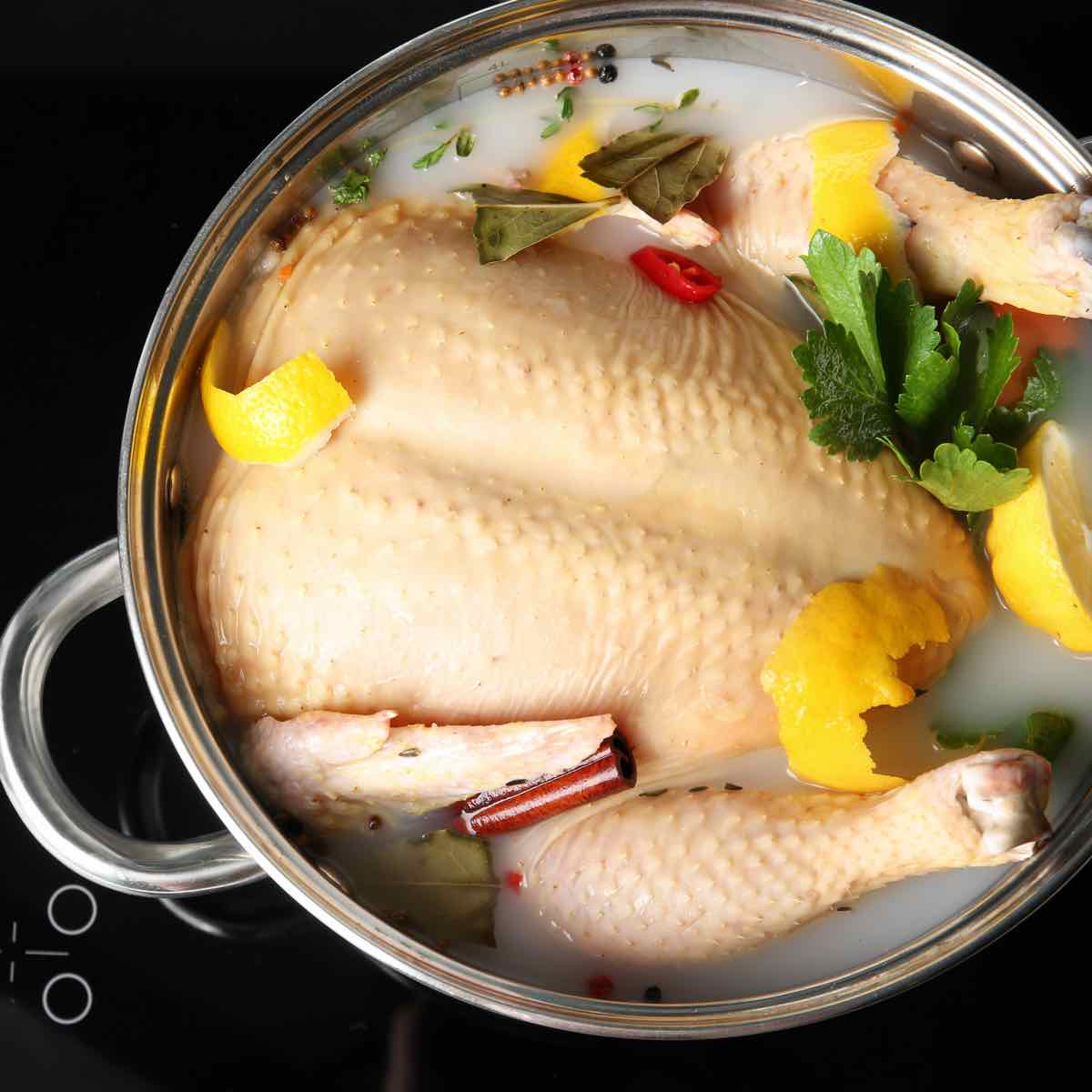
BRINING YOUR TURKEY
It is unanimous; all the chefs agreed you want to brine your turkey. Here is what they say,
Chef Field – “Brine your turkey! It makes a huge difference in juicy, succulent goodness. It’s also a step that requires very little active time and is worth it.”
Chef Vogel – “Brine, your turkey. This is a direct way to make the meat juicier. Brining is the process of soaking meat in a salt-water solution. I recommend at least six hours for a whole turkey.
Brining works via the osmosis processes and the tendency for adjacent mediums to equalize their salinity level. In a nutshell, the turkey will absorb some of the water and become moister. For a 12 16 lb. turkey, use two cups of kosher salt or one cup of table salt for every 2 gallons of water.
Chef Nelson – “I always try to brine my turkey before roasting, smoking, or frying. Brining the turkey adds flavor and moisture and improves tenderness and texture. A basic brine recipe is 1 gallon of water, 1 cup of kosher salt, 1/2 cup granulated sugar, and 1/2 cup of brown sugar.
Combine the ingredients and stir to dissolve the sugars and salt. (NOTE: I keep a 1-quart version of this recipe in my fridge at home for chicken and pork preparations.) You can add other ingredients to your brine right before you use it, like sliced garlic, peppercorns, honey, fresh herbs, etc.
Cover the bird with brine in a non-reactive glass, plastic, or stainless steel container. A Coleman cooler works great. The bird must be kept cold during the brining process. A large turkey should sit in the brine for a good twelve hours. Birds need to be fresh and thoroughly thawed for brining. So plan ahead.
Very Important! Thoroughly rinse brined birds or pork before you cook them to remove the saltiness. And if you are frying that turkey, dry it off, inside and out, very thoroughly before submerging it into the peanut oil.”
Chef Leslie – “Brine the Bird! It stays super-moist and much more flavorful. But, by far, the best bird I’ve ever had has been a brined bird. Brining is a marinade high in salt, with sugar, spices, and herbs.
Brining hydrates the cells of the muscle. The salt content of the brine is higher than that of the muscle cells, and this saline contrast forces the salt into the cell by osmosis. The salt draws the water and flavorings in, resulting in a moist, flavorful bird. The salt also denatures the protein of the muscle, which essentially re-configures the protein to hold more water.”
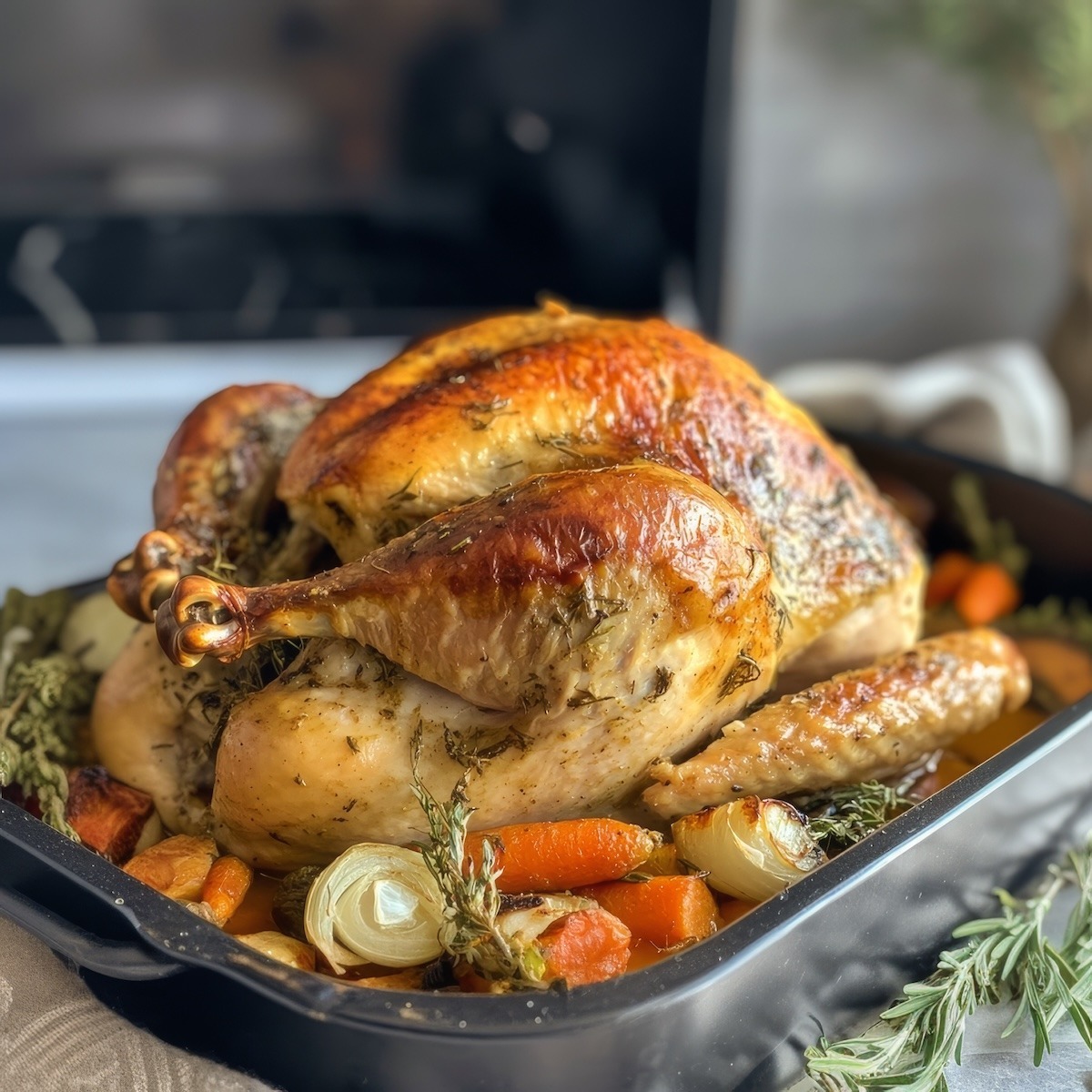
COOKING THE BIRD
Chef Vogel – “Roast a turkey at lower temperatures, usually 325º 350º F. Intense heat can overcook the outside before the center is completely done.
Many cooks start or finish the bird at high heat (400 degrees or more) to ensure a fully browned exterior and crisp skin. I prefer the latter as it is easier to gauge how much additional browning is needed toward the end of the cooking process.
Also, don’t worry about basting. The meat, covered by the skin, will not absorb the juices. So whenever you open the oven door, you’re allowing heat to escape and prolonged cooking time.”
IS MY TURKEY TIRED? NO, BUT IT NEEDS TO REST
Chef Nelson – “It needs to rest after it comes out of the oven. A good rule of thumb is to allow it to rest for one minute per pound after cooking. This allows the juices in the bird to redistribute evenly through the bird.”
Chef Vogel: “Allow the turkey to rest for 15-30 minutes before carving. All roasted items should rest before being carved. This allows the juices to be reabsorbed into the meat.
If you carve it immediately, the juices will run out. However, the turkey will continue to cook during this time due to carry-over cooking. Therefore, you should remove the turkey when it is about 10 degrees less than the target temperature.”
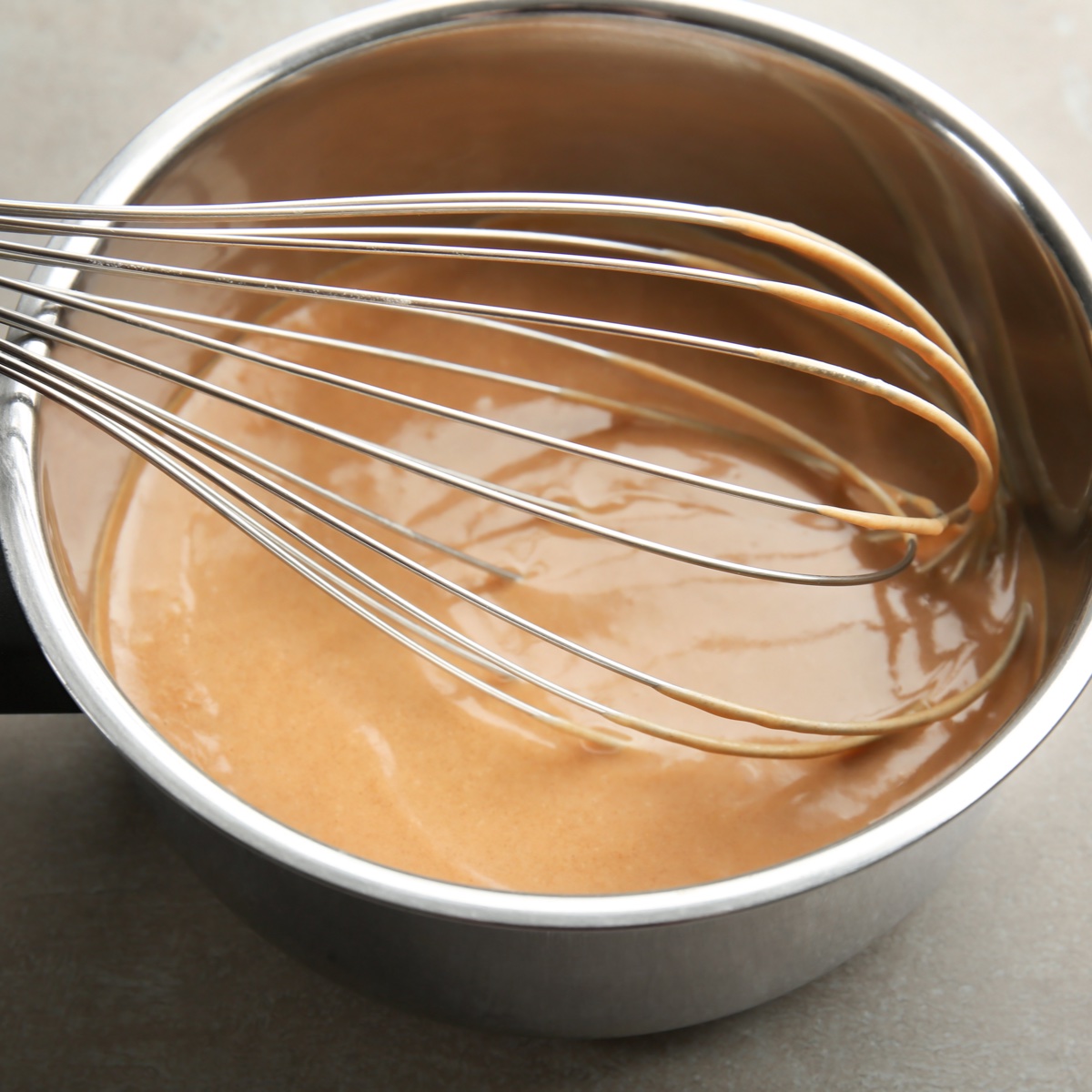
TURKEY GRAVY
Chef Field – “Please make your gravy. I roast the turkey on top of mirepoix (veggies: onion, celery, and carrot) to start with nice, deep base flavors. Save some of the cooking liquid from your vegetables (starch from potato water adds to the thickening), and use chicken stock.
Leave some of those spent veggies in the roasting pan. Instead, build a roux in your roasting pan by adding flour to the drippings (over two stove burners, on medium) and scraping up all the brown goodness from the pan (fond).
Cook the roux for about 5 minutes, add your water/stock, and cook until you have gravy. You can hit it with an immersion blender. The leftover bits of veggies will help thicken it, then strain it (if you don’t want any lumps). Season to taste however you like.”
Chef Nelson – “Thanksgiving Turkey Gravy has always been my high priority. If the gravy is not up to par, everything you put it on is not up to par either. My Thanksgiving gravy is more of a demi-glace than a flour/roux thickened sauce or gravy.
It is made by roasting the broken-down birds’ bones and trimmings with onions, carrots, and celery and then simmering them in the stock pot overnight. The rich broth is then strained and further reduced until it is rich and the turkey flavor is intensified.”
RG – Check out my Turkey Gravy Recipe that I adapted from Cuisine.
MASHED POTATOES
Chef Field – “As far as I’m concerned, there must be mashed potatoes at Thanksgiving. For the best mashed potatoes, dry out your spuds before mashing. Too much water in the potatoes will make them all stodgy.
After boiling, let them sit in the hot pan and release steam for a few minutes before mashing. (Or try baking your potatoes before mashing instead of boiling them. Then, you won’t have as much of a water issue).
I also mash in the butter first, then the dairy, salt, and pepper. They’re also good with a heavy sprinkle of Mrs. Dash Original Seasoning Blend. (Notice, I don’t use it as a salt substitute but as an addition to salt.
Add a whole head (or more, depending on how many potatoes you’re mashing) of roasted garlic.”
RG What is the best recipe for mashed potatoes?
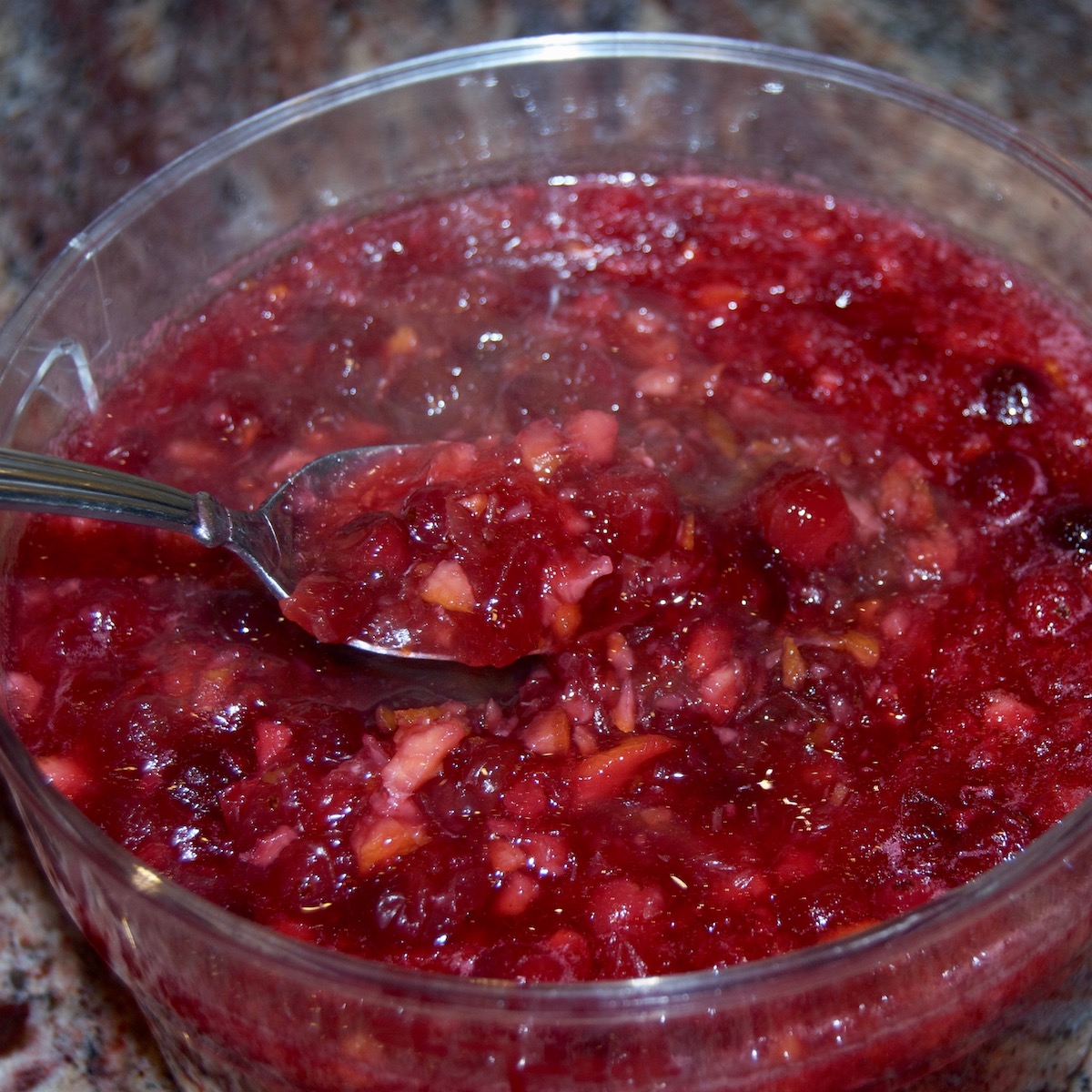
CRANBERRY SAUCE
Chef Field – “Here is a short-cut recipe if you don’t want to make/don’t have enough time to make your cranberry sauce. Use Ocean Spray whole berry sauce.
Add in a little salt to taste, some orange zest, and a splash of Grand Marnier (or Cointreau or Triple Secany orange liqueur will do) or a little OJ for a non-alcoholic version.
You could add a hit of Amaretto and some toasted, chopped almonds. Or some Frangelico and some toasted, chopped hazelnuts. Easy and good.”
RG, I have a Fresh Orange Cranberry Sauce recipe that’s pretty good too.
CLEAN UP
Chef Bilderback – “Make sure you’ve got someone ELSE lined up to do the dishes! Also, do NOT put a bunch of stuff down your disposal! Plumbers make a killing on Thanksgiving!
Start a compost pile instead and save our planet. They may look like carrot peels, but with all the other stuff, your poor pipes won’t hack it.”
I hope you enjoyed these tips. Please post your own or in the comments section, including some of your favorite recipes.


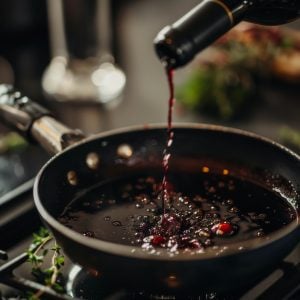
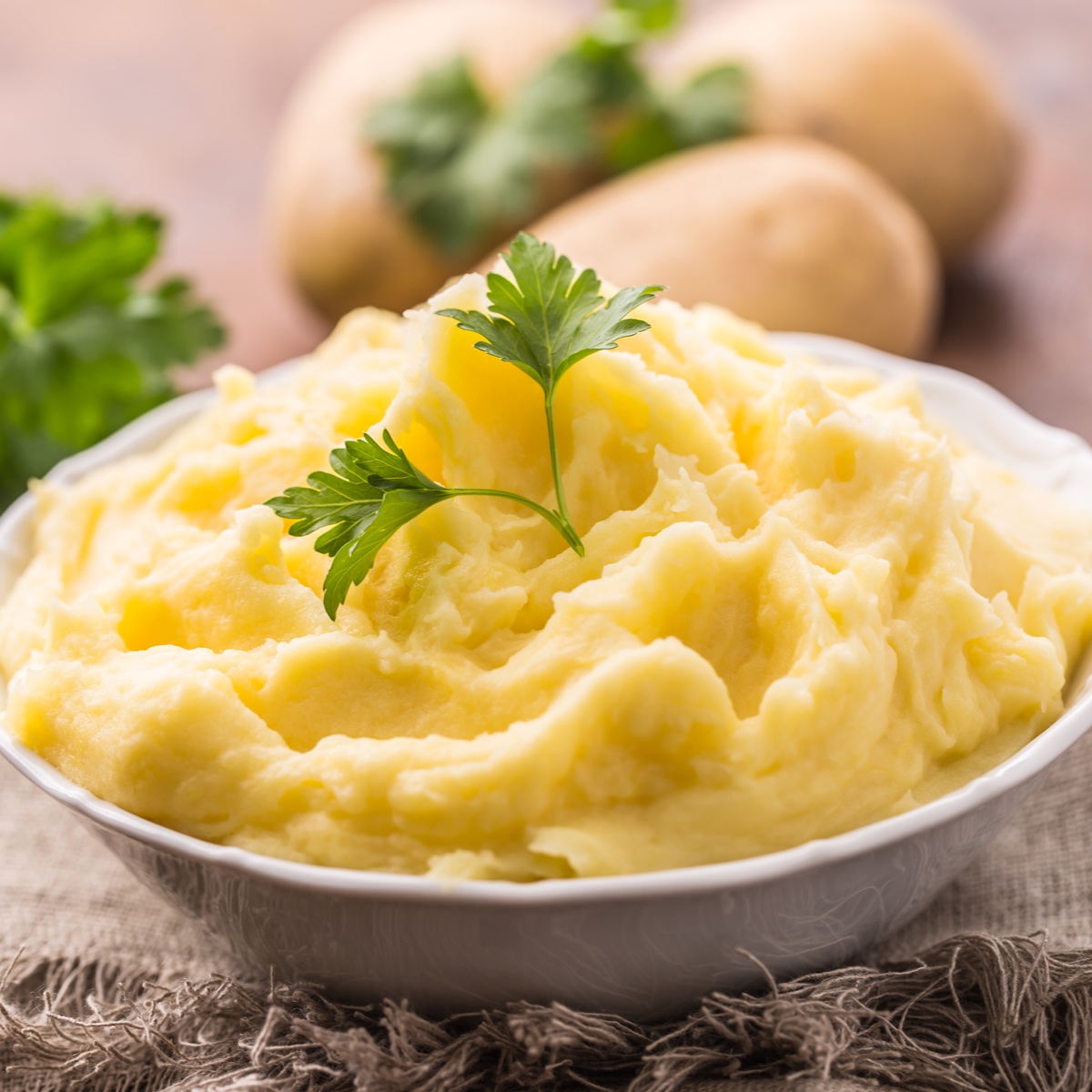
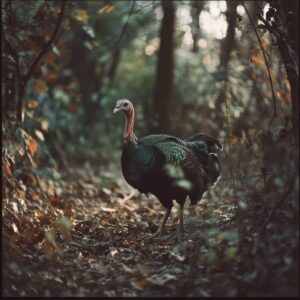
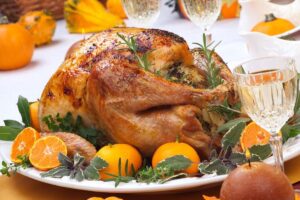
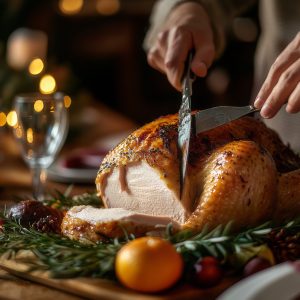
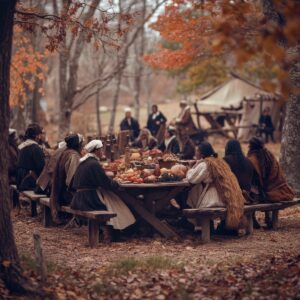
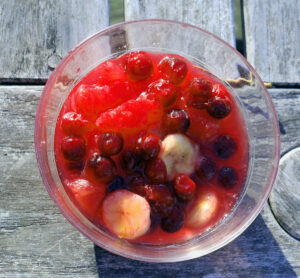
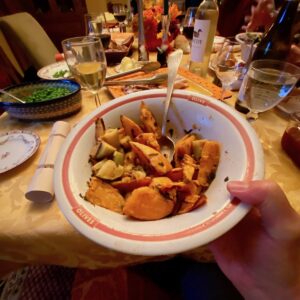
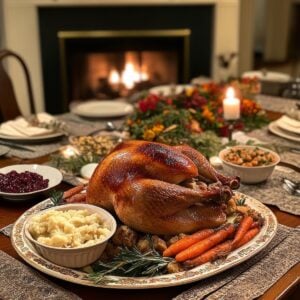



8 Responses
Ok, I am having guests from out of town … so what do I do with the turkey if I cook few hours in advance? leave it in the oven or what?? Cos I don’t wanna end up standing in the kitchen waiting for the bird to cook after guests have already arrived … any idea ?
Loved all these tips. I am the “gravy maker” when I’m with hubby’s fam. They just always used (gasp!) jarred gravy before I married in. And they all mock me, but I scramble around to be the first to clear the table: saving leftovers, drippings, and “stuff” to add to the carcass for future soup making. They never laugh when they eat my soup, though!
I would like to know if you can set the turkey up with the seasonings and the onions etc… on the inside ahead of time?
Thank you
Mahalo for these coking tips. I have cooked my turkey imu-style for the last 10 years but we have some company this year that wants a “traditional bird”. The imu recipe, if you want a treat, is at http://blog.going2oahu.com/2007/11/19/hawaii-imu-turkey-recipe-for-thanksgiving.aspx
Aloha nui from Going2Oahu!!
Re the turkey being cooked ‘ahead’ for out-of-town guests, if you start the turkey at a higher heat (tented); REDUCE it to a lower temperature of 300 degrees (even to 275), you can start it earlier; have it virtually ‘done’ 3 hours before your guests arrive, and then for those remaining hours, putting it at 275 – even dropping to 250 if the turkey is thoroughly cooked, and by KEEPING IT TENTED; basting it about every 1/2 hour (helping to keep it moist), you can then turn that oven off 45 mintues BEFORE your guests arrive, and the turkey ‘rests’ (as we know it should). The larger the turkey, the greater the build-up of heat; the longer it stays warm, and no one really demands a turkey be ‘piping hot’ SO LONG AS THE GRAVY IS NICE AND HOT (very warm anyway).
If you’re still worried, KEEP SOME PIPING HOT STOCK/DRIPPINGS on the back of your stove; before you start to carve the turkey, a nice dousing. As you ‘plate’ (if you’re cutting and plating in the kitchen, and not in front of your guests), you layer a bit of that hot stock you kept – warms up the turkey; moistens it, and adds flavor!
If you’re cutting in front of your guests, simply offer up the ‘au juis’ thought to them as you ladle a bit of that hot stock over each serving; they’ll love you for it. If they want GRAVY on their turkey, be sure that’s nice and warm/hot, and offer to ladle a bit of that in lieu of the juice, or added to the juice (my husband loves both).
Many restaurants use a similar technique; then they pop your individual ‘serving’ into a Microwave for about 30 seconds before the waitress brings it to you, and most people never know they’ve been ‘zapped’…if you need to ‘zap’, that’s your last resort.
I’m 67 years old; made turkey as a regular meal for my children (5), at least ONCE A MONTH because we both prefer poulty and fish rather than red meats. I guess I’ve had enough practice with turkeys of all sizes, and it seems virtually everyone loves turkey so long as it is DONE (not undone/raw-like); hot – cool – cold; temperature never seems to matter as much as being certain there’s no ‘blood’ running (a dry turkey can soak up broth and gravy; an un-done one is ADDING to that gravy in a way you don’t want to experience).
HAPPY TURKEY DAY.
Lisa,
You certainly can put all your aromatics/seasonings in the bird ahead of time. The only thing I’d add right before cooking would be any liquid (if you’re using it). But herbs, lemons, butter, etc can certainly go in a day or 2 before.
Should you brine a turkey that will go into an imu?
What????? – RG
Yes, even though we’re vegiratean! We’re making one for the non-veggie people that are coming. Plus lentil loaf, mashed potatoes, gravy, corn, green bean casserole, sweet potato casserole, cauliflower, peas, cornbread, cranberry sauce…And of course pumpkin, apple, pecan, and berry pie!